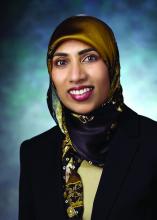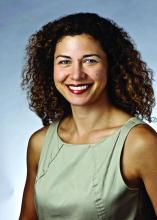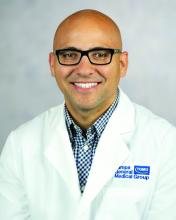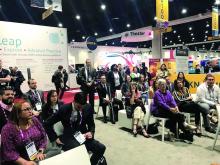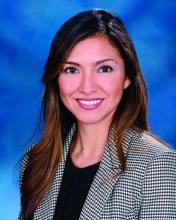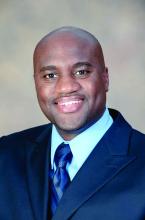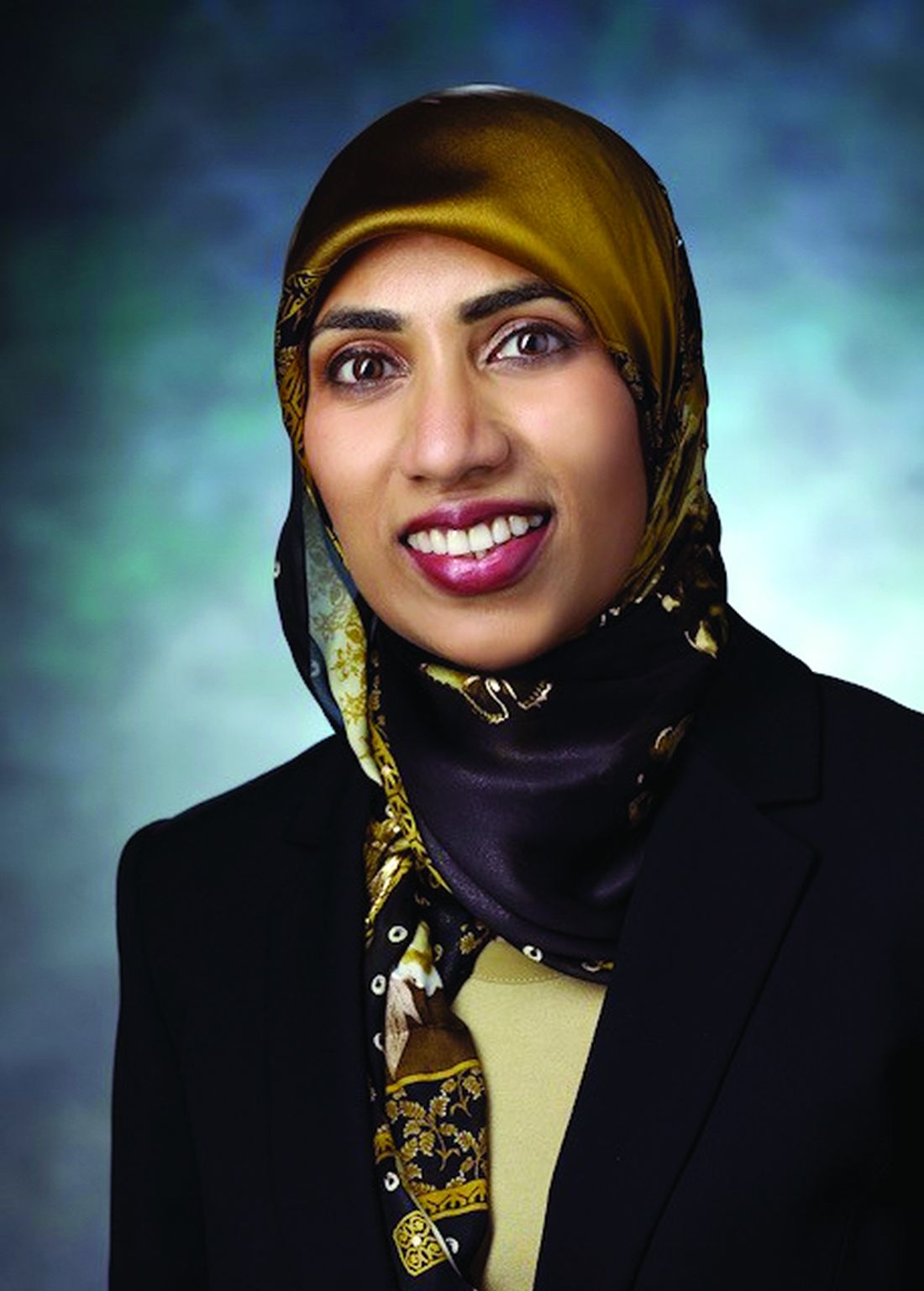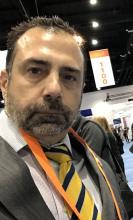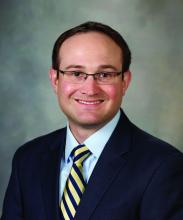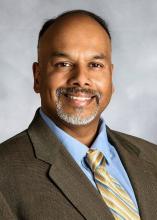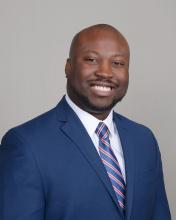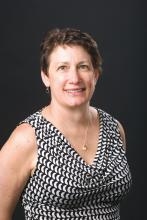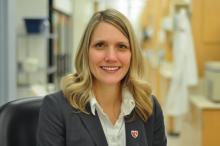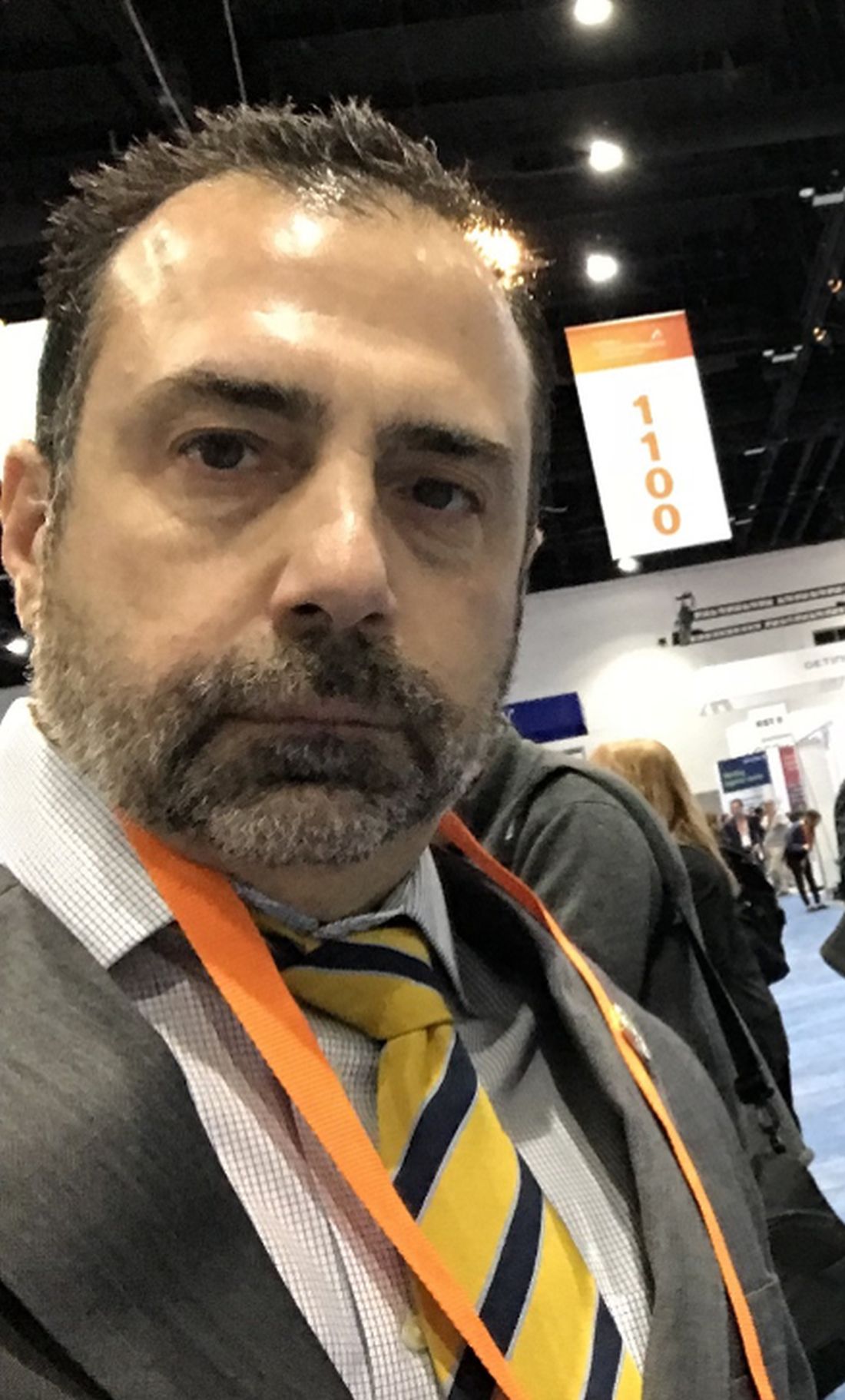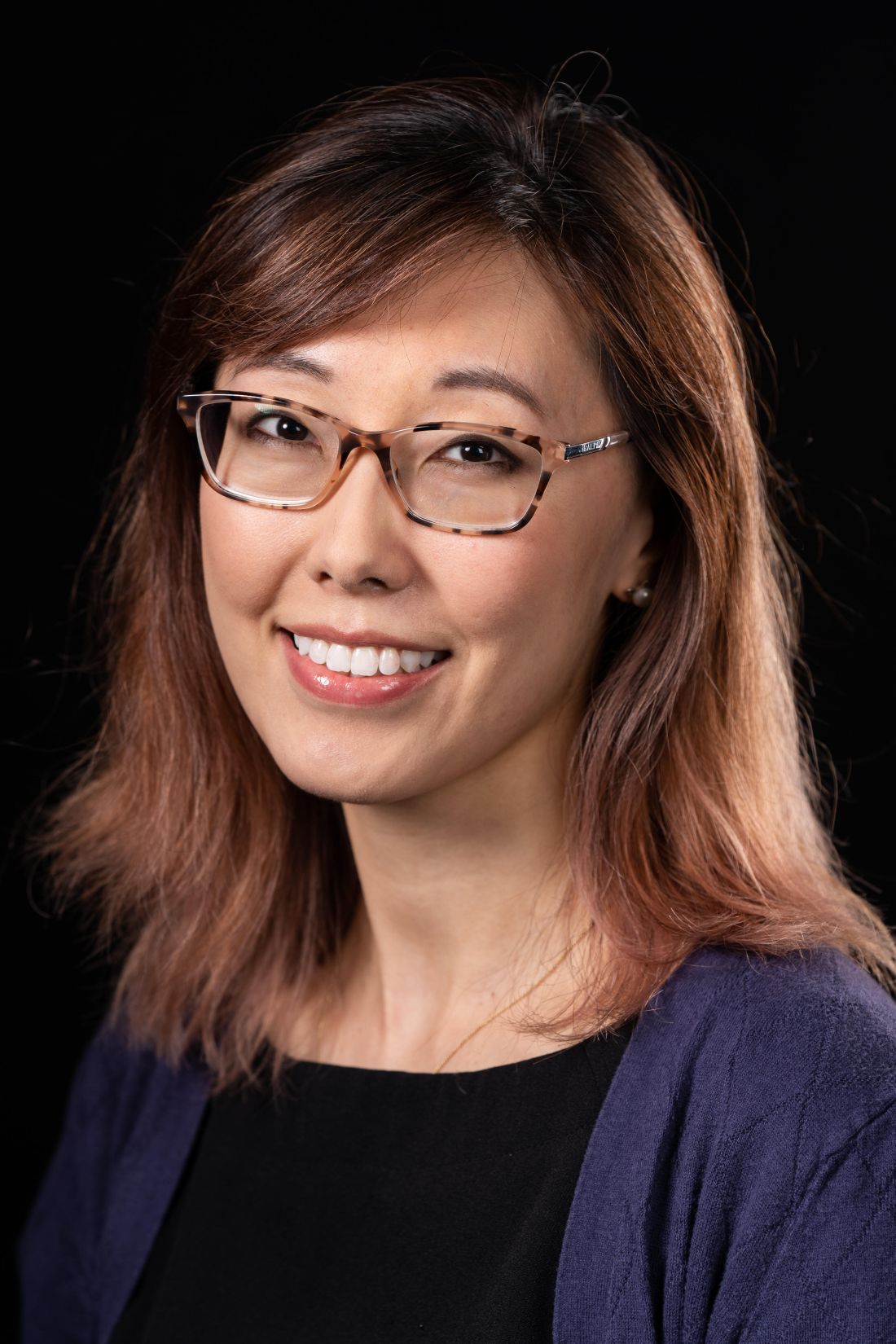User login
Help honor today’s luminaries in GI
The AGA Research Foundation is dedicated to supporting future leaders in GI while highlighting today’s luminaries.
Our new program, AGA Honors: Celebrating Difference Makers in Our Field, recognizes individuals who have played a pivotal role in shaping the fields of gastroenterology and hepatology and raises funds for the next generation of investigators working to advance digestive disease research and patient care.
Learn more about our honorees by visiting our website at http://foundation.gastro.org/aga-honors-celebrating/. Help us celebrate their achievements by donating to the AGA Research Foundation. Contributions are tax-deductible and will go directly to the Foundation research award endowment.
The AGA Research Foundation is dedicated to supporting future leaders in GI while highlighting today’s luminaries.
Our new program, AGA Honors: Celebrating Difference Makers in Our Field, recognizes individuals who have played a pivotal role in shaping the fields of gastroenterology and hepatology and raises funds for the next generation of investigators working to advance digestive disease research and patient care.
Learn more about our honorees by visiting our website at http://foundation.gastro.org/aga-honors-celebrating/. Help us celebrate their achievements by donating to the AGA Research Foundation. Contributions are tax-deductible and will go directly to the Foundation research award endowment.
The AGA Research Foundation is dedicated to supporting future leaders in GI while highlighting today’s luminaries.
Our new program, AGA Honors: Celebrating Difference Makers in Our Field, recognizes individuals who have played a pivotal role in shaping the fields of gastroenterology and hepatology and raises funds for the next generation of investigators working to advance digestive disease research and patient care.
Learn more about our honorees by visiting our website at http://foundation.gastro.org/aga-honors-celebrating/. Help us celebrate their achievements by donating to the AGA Research Foundation. Contributions are tax-deductible and will go directly to the Foundation research award endowment.
Promoting diversity through the AGA
As gastroenterologists and gastrointestinal researchers, we work with an increasingly diverse patient population amid known disparities in health care delivery and health outcomes. The American Gastroenterological Association values diversity and inclusion, and part of its strategic plan is to increase and diversify its membership and leaders. The AGA Diversity Committee supports this strategic goal by fostering and promoting involvement, advancement, and recognition of underrepresented diverse constituencies. This is accomplished through policy recommendations and programs, providing resources to AGA members for addressing barriers to access and utilization of health care services among diverse patient populations with attention to linguistic, racial, cultural, religious, sexual orientation, gender identity, disability, age, and economic diversity.
There are eight clinician and investigator members, including the chair as well as one trainee member on the AGA Diversity Committee. Four members are appointed at-large and three members are appointed from the AGA Institute Committees and the AGA Institute Council. The committee has set out to achieve mission-driven goals with several initiatives that align with its intention to cultivate a diverse, inclusive, and engaged membership, armed with the necessary tools to provide the highest quality care and perform the most effective research that will benefit our patient population.
The communications task force highlights programs and topics that support the committee’s missions. Members of the committee coauthored a paper on colorectal disparities published in GI & Hepatology News in May 2018.1 In addition to presenting the disparities in colorectal screening, it provided ways to close this gap. A more recent publication in AGA Perspectives focused on unconscious bias as a prelude to the committee’s workshop at Digestive Disease Week® (DDW) 2019.2 An important initiative has been promoting Black History Month in February and Pride Month in June by posting cases or displaying prominent trailblazers on the AGA Community. In the upcoming months, profiles of several committee members will be featured in eDigest, GI & Hepatology News, and on AGA’s social media platforms.
DDW programming sponsored by the Diversity Committee is an important way to engage our members. At DDW 2019, the committee sponsored a clinical symposium title “Beyond Starbucks: Mitigating Bias Through Awareness.” This session was inspired by the 2018 incidence hallmarked by the inappropriate arrest of two African American men at a Philadelphia Starbucks. This event led to a nationwide educational breakout for all employees aimed at providing unconscious bias training. The Diversity Committee drew inspiration from these events, holding a symposium with set goals of defining unconscious bias and identifying areas within health care where unconscious bias can influence patient care. The committee invited Allyson Dylan Robinson, a portfolio lead from the Association of American Medical Colleges–endorsed Cook Ross Firm, who is nationally recognized as a leader in unconscious bias training. The assembly began with an introductory lecture followed by breakout sessions where small groups reviewed selected patient cases to determine the influence of unconscious bias in clinical scenarios. It was a well-attended symposium and was complementary to the wide array of didactic lectures offered at DDW. Bringing to light significant issues and barriers to health care is one key aspect of the mission set forth by the Diversity Committee.
The AGA Diversity Committee e-poster tour at DDW 2019 promoted the research led by scientist and physician members of underrepresented groups in medicine and/or research focused on gastrointestinal diseases in underrepresented populations. Several high-quality abstracts were reviewed and four were selected for the e-poster tour. Each scientist presented their research in front of an enthusiastic audience of DDW attendees, followed by a question and answer session. Gonzalo Parodi, BS (Cedars-Sinai Medical Center, Los Angeles), presented an elegant study showing that the antibiotic changes to intestinal microbiome were sex specific in mice. Alexis Rivera, MD (University of Puerto Rico, San Juan), found no association between inflammatory bowel disease (IBD) serologic markers and risk of surgery in patients with IBD in Puerto Rico. Maria Gonzalez-Pons, PhD (University of Puerto Rico Comprehensive Cancer Center, San Juan), presented the first study looking at the mutational landscape of early-onset colorectal cancer tumors in Puerto Rican Hispanics, as a first step toward personalizing early screening in this population. Finally, Sushrut Jangi, MD (Brigham and Women’s Hospital, Boston), presented the first longitudinal study describing the unique demographic and phenotypic characteristics of IBD in South Asians living in the United States, showing that smoking was less relevant as a risk factor, and that Crohn’s presented with a more aggressive penetrating phenotype in this population. At the conclusion of the e-poster tour, attendees and presenters had the opportunity to exchange future research ideas or follow-up and network.
The upcoming DDW 2020 AGA Diversity Committee–sponsored symposium entitled “GI Health Disparities and Creating Affirming Environments for the LGBT+ Community: The Gastroenterologist, Patient, Researcher and Educator Perspectives” will provide attendees with the opportunity to learn not only about challenges faced by the LGBTQ+ community as patients, learners, and scientists, but how we as educators, researchers, clinicians, and leaders can strategically address these challenges and intentionally create inclusive spaces in an effort to reduce health care disparities and inequities in both clinical and academic environments.
A current initiative is the creation of an archive of notable underrepresented gastroenterologists and GI scientists. The database will serve as a resource for conference organizers and committee members to identify junior speakers and mentors from diverse minority, ethnic, and racial backgrounds. This will be a platform for divisional chairs, program directors, and mentors to recommend and promote upcoming stars in their designated fields. Once the website and cloud database have been built, the diversity committee will reach out to divisional chairs, program directors, committee members, and leaders in the field to recommend physicians and scientists to include in this database. We will then reach out to nominees with an invitation and link to complete their profile in the database. We believe that this will be an opportunity for young physicians and scientists and a resource to promote diversity in medicine and science.
While we share many common experiences as ethnic minorities, the gastroenterologists comprising the AGA Diversity Committee come from various cultural backgrounds, ethnicities, and clinical practice settings. Yet rather than creating contention, our differences are the strength of this committee. Our diverse backgrounds lead to a plethora of innovative ideas and perspectives in group discussions, resulting in very robust and productive meetings. In recognizing that a diverse group can render novel solutions to many topics and issues, one of our goals is to increase membership of underrepresented groups in the AGA, as well as participation in AGA committees. This entails direct outreach to gastroenterologists in these groups and acquainting them with the ways active participation in the numerous AGA committees will support the issues affecting their profession and patients.
The process of serving on an AGA committee is simple. Interested members can nominate themselves or be nominated by another AGA member and fill out a short application. The list of AGA committees, responsibilities, open positions, and application can be found at https://www.gastro.org/aga-leadership/committees. We believe committee participation is personally and professionally rewarding, and serving on the Diversity Committee is particularly gratifying, as we can address pertinent issues that may otherwise be neglected.
Dr. Badurdeen is assistant professor at Johns Hopkins Medicine, Columbia, Md; Dr. Charabaty Pishvaian is associate professor, clinical director of the GI division, and director of the IBD Center at Sibley Memorial Hospital, Washington; Dr. Malespin is assistant professor at the University of South Florida, Tampa, and transplant hepatologist, Tampa General Hospital; Dr. Oduyebo is a gastroenterologist for Mid-Atlantic Permanente Medical Group, Shady Grove, Md; Dr. Quezada is associate professor and assistant dean for academic and multicultural affairs, University of Maryland, Baltimore County; and Dr. Stephen is a gastroenterologist at Annadel Medical Group, Santa Rosa, Calif.
References
1. Oduyebo I et al. Underserved populations and colorectal cancer screening: Patient perceptions of barriers to care and effective interventions. GI & Hepatology News. May 2018.
2. Munroe CA et al. The AGA Diversity Committee: Opening up a conversation about unconscious bias in GI practice. AGA Perspectives. July 2019.
As gastroenterologists and gastrointestinal researchers, we work with an increasingly diverse patient population amid known disparities in health care delivery and health outcomes. The American Gastroenterological Association values diversity and inclusion, and part of its strategic plan is to increase and diversify its membership and leaders. The AGA Diversity Committee supports this strategic goal by fostering and promoting involvement, advancement, and recognition of underrepresented diverse constituencies. This is accomplished through policy recommendations and programs, providing resources to AGA members for addressing barriers to access and utilization of health care services among diverse patient populations with attention to linguistic, racial, cultural, religious, sexual orientation, gender identity, disability, age, and economic diversity.
There are eight clinician and investigator members, including the chair as well as one trainee member on the AGA Diversity Committee. Four members are appointed at-large and three members are appointed from the AGA Institute Committees and the AGA Institute Council. The committee has set out to achieve mission-driven goals with several initiatives that align with its intention to cultivate a diverse, inclusive, and engaged membership, armed with the necessary tools to provide the highest quality care and perform the most effective research that will benefit our patient population.
The communications task force highlights programs and topics that support the committee’s missions. Members of the committee coauthored a paper on colorectal disparities published in GI & Hepatology News in May 2018.1 In addition to presenting the disparities in colorectal screening, it provided ways to close this gap. A more recent publication in AGA Perspectives focused on unconscious bias as a prelude to the committee’s workshop at Digestive Disease Week® (DDW) 2019.2 An important initiative has been promoting Black History Month in February and Pride Month in June by posting cases or displaying prominent trailblazers on the AGA Community. In the upcoming months, profiles of several committee members will be featured in eDigest, GI & Hepatology News, and on AGA’s social media platforms.
DDW programming sponsored by the Diversity Committee is an important way to engage our members. At DDW 2019, the committee sponsored a clinical symposium title “Beyond Starbucks: Mitigating Bias Through Awareness.” This session was inspired by the 2018 incidence hallmarked by the inappropriate arrest of two African American men at a Philadelphia Starbucks. This event led to a nationwide educational breakout for all employees aimed at providing unconscious bias training. The Diversity Committee drew inspiration from these events, holding a symposium with set goals of defining unconscious bias and identifying areas within health care where unconscious bias can influence patient care. The committee invited Allyson Dylan Robinson, a portfolio lead from the Association of American Medical Colleges–endorsed Cook Ross Firm, who is nationally recognized as a leader in unconscious bias training. The assembly began with an introductory lecture followed by breakout sessions where small groups reviewed selected patient cases to determine the influence of unconscious bias in clinical scenarios. It was a well-attended symposium and was complementary to the wide array of didactic lectures offered at DDW. Bringing to light significant issues and barriers to health care is one key aspect of the mission set forth by the Diversity Committee.
The AGA Diversity Committee e-poster tour at DDW 2019 promoted the research led by scientist and physician members of underrepresented groups in medicine and/or research focused on gastrointestinal diseases in underrepresented populations. Several high-quality abstracts were reviewed and four were selected for the e-poster tour. Each scientist presented their research in front of an enthusiastic audience of DDW attendees, followed by a question and answer session. Gonzalo Parodi, BS (Cedars-Sinai Medical Center, Los Angeles), presented an elegant study showing that the antibiotic changes to intestinal microbiome were sex specific in mice. Alexis Rivera, MD (University of Puerto Rico, San Juan), found no association between inflammatory bowel disease (IBD) serologic markers and risk of surgery in patients with IBD in Puerto Rico. Maria Gonzalez-Pons, PhD (University of Puerto Rico Comprehensive Cancer Center, San Juan), presented the first study looking at the mutational landscape of early-onset colorectal cancer tumors in Puerto Rican Hispanics, as a first step toward personalizing early screening in this population. Finally, Sushrut Jangi, MD (Brigham and Women’s Hospital, Boston), presented the first longitudinal study describing the unique demographic and phenotypic characteristics of IBD in South Asians living in the United States, showing that smoking was less relevant as a risk factor, and that Crohn’s presented with a more aggressive penetrating phenotype in this population. At the conclusion of the e-poster tour, attendees and presenters had the opportunity to exchange future research ideas or follow-up and network.
The upcoming DDW 2020 AGA Diversity Committee–sponsored symposium entitled “GI Health Disparities and Creating Affirming Environments for the LGBT+ Community: The Gastroenterologist, Patient, Researcher and Educator Perspectives” will provide attendees with the opportunity to learn not only about challenges faced by the LGBTQ+ community as patients, learners, and scientists, but how we as educators, researchers, clinicians, and leaders can strategically address these challenges and intentionally create inclusive spaces in an effort to reduce health care disparities and inequities in both clinical and academic environments.
A current initiative is the creation of an archive of notable underrepresented gastroenterologists and GI scientists. The database will serve as a resource for conference organizers and committee members to identify junior speakers and mentors from diverse minority, ethnic, and racial backgrounds. This will be a platform for divisional chairs, program directors, and mentors to recommend and promote upcoming stars in their designated fields. Once the website and cloud database have been built, the diversity committee will reach out to divisional chairs, program directors, committee members, and leaders in the field to recommend physicians and scientists to include in this database. We will then reach out to nominees with an invitation and link to complete their profile in the database. We believe that this will be an opportunity for young physicians and scientists and a resource to promote diversity in medicine and science.
While we share many common experiences as ethnic minorities, the gastroenterologists comprising the AGA Diversity Committee come from various cultural backgrounds, ethnicities, and clinical practice settings. Yet rather than creating contention, our differences are the strength of this committee. Our diverse backgrounds lead to a plethora of innovative ideas and perspectives in group discussions, resulting in very robust and productive meetings. In recognizing that a diverse group can render novel solutions to many topics and issues, one of our goals is to increase membership of underrepresented groups in the AGA, as well as participation in AGA committees. This entails direct outreach to gastroenterologists in these groups and acquainting them with the ways active participation in the numerous AGA committees will support the issues affecting their profession and patients.
The process of serving on an AGA committee is simple. Interested members can nominate themselves or be nominated by another AGA member and fill out a short application. The list of AGA committees, responsibilities, open positions, and application can be found at https://www.gastro.org/aga-leadership/committees. We believe committee participation is personally and professionally rewarding, and serving on the Diversity Committee is particularly gratifying, as we can address pertinent issues that may otherwise be neglected.
Dr. Badurdeen is assistant professor at Johns Hopkins Medicine, Columbia, Md; Dr. Charabaty Pishvaian is associate professor, clinical director of the GI division, and director of the IBD Center at Sibley Memorial Hospital, Washington; Dr. Malespin is assistant professor at the University of South Florida, Tampa, and transplant hepatologist, Tampa General Hospital; Dr. Oduyebo is a gastroenterologist for Mid-Atlantic Permanente Medical Group, Shady Grove, Md; Dr. Quezada is associate professor and assistant dean for academic and multicultural affairs, University of Maryland, Baltimore County; and Dr. Stephen is a gastroenterologist at Annadel Medical Group, Santa Rosa, Calif.
References
1. Oduyebo I et al. Underserved populations and colorectal cancer screening: Patient perceptions of barriers to care and effective interventions. GI & Hepatology News. May 2018.
2. Munroe CA et al. The AGA Diversity Committee: Opening up a conversation about unconscious bias in GI practice. AGA Perspectives. July 2019.
As gastroenterologists and gastrointestinal researchers, we work with an increasingly diverse patient population amid known disparities in health care delivery and health outcomes. The American Gastroenterological Association values diversity and inclusion, and part of its strategic plan is to increase and diversify its membership and leaders. The AGA Diversity Committee supports this strategic goal by fostering and promoting involvement, advancement, and recognition of underrepresented diverse constituencies. This is accomplished through policy recommendations and programs, providing resources to AGA members for addressing barriers to access and utilization of health care services among diverse patient populations with attention to linguistic, racial, cultural, religious, sexual orientation, gender identity, disability, age, and economic diversity.
There are eight clinician and investigator members, including the chair as well as one trainee member on the AGA Diversity Committee. Four members are appointed at-large and three members are appointed from the AGA Institute Committees and the AGA Institute Council. The committee has set out to achieve mission-driven goals with several initiatives that align with its intention to cultivate a diverse, inclusive, and engaged membership, armed with the necessary tools to provide the highest quality care and perform the most effective research that will benefit our patient population.
The communications task force highlights programs and topics that support the committee’s missions. Members of the committee coauthored a paper on colorectal disparities published in GI & Hepatology News in May 2018.1 In addition to presenting the disparities in colorectal screening, it provided ways to close this gap. A more recent publication in AGA Perspectives focused on unconscious bias as a prelude to the committee’s workshop at Digestive Disease Week® (DDW) 2019.2 An important initiative has been promoting Black History Month in February and Pride Month in June by posting cases or displaying prominent trailblazers on the AGA Community. In the upcoming months, profiles of several committee members will be featured in eDigest, GI & Hepatology News, and on AGA’s social media platforms.
DDW programming sponsored by the Diversity Committee is an important way to engage our members. At DDW 2019, the committee sponsored a clinical symposium title “Beyond Starbucks: Mitigating Bias Through Awareness.” This session was inspired by the 2018 incidence hallmarked by the inappropriate arrest of two African American men at a Philadelphia Starbucks. This event led to a nationwide educational breakout for all employees aimed at providing unconscious bias training. The Diversity Committee drew inspiration from these events, holding a symposium with set goals of defining unconscious bias and identifying areas within health care where unconscious bias can influence patient care. The committee invited Allyson Dylan Robinson, a portfolio lead from the Association of American Medical Colleges–endorsed Cook Ross Firm, who is nationally recognized as a leader in unconscious bias training. The assembly began with an introductory lecture followed by breakout sessions where small groups reviewed selected patient cases to determine the influence of unconscious bias in clinical scenarios. It was a well-attended symposium and was complementary to the wide array of didactic lectures offered at DDW. Bringing to light significant issues and barriers to health care is one key aspect of the mission set forth by the Diversity Committee.
The AGA Diversity Committee e-poster tour at DDW 2019 promoted the research led by scientist and physician members of underrepresented groups in medicine and/or research focused on gastrointestinal diseases in underrepresented populations. Several high-quality abstracts were reviewed and four were selected for the e-poster tour. Each scientist presented their research in front of an enthusiastic audience of DDW attendees, followed by a question and answer session. Gonzalo Parodi, BS (Cedars-Sinai Medical Center, Los Angeles), presented an elegant study showing that the antibiotic changes to intestinal microbiome were sex specific in mice. Alexis Rivera, MD (University of Puerto Rico, San Juan), found no association between inflammatory bowel disease (IBD) serologic markers and risk of surgery in patients with IBD in Puerto Rico. Maria Gonzalez-Pons, PhD (University of Puerto Rico Comprehensive Cancer Center, San Juan), presented the first study looking at the mutational landscape of early-onset colorectal cancer tumors in Puerto Rican Hispanics, as a first step toward personalizing early screening in this population. Finally, Sushrut Jangi, MD (Brigham and Women’s Hospital, Boston), presented the first longitudinal study describing the unique demographic and phenotypic characteristics of IBD in South Asians living in the United States, showing that smoking was less relevant as a risk factor, and that Crohn’s presented with a more aggressive penetrating phenotype in this population. At the conclusion of the e-poster tour, attendees and presenters had the opportunity to exchange future research ideas or follow-up and network.
The upcoming DDW 2020 AGA Diversity Committee–sponsored symposium entitled “GI Health Disparities and Creating Affirming Environments for the LGBT+ Community: The Gastroenterologist, Patient, Researcher and Educator Perspectives” will provide attendees with the opportunity to learn not only about challenges faced by the LGBTQ+ community as patients, learners, and scientists, but how we as educators, researchers, clinicians, and leaders can strategically address these challenges and intentionally create inclusive spaces in an effort to reduce health care disparities and inequities in both clinical and academic environments.
A current initiative is the creation of an archive of notable underrepresented gastroenterologists and GI scientists. The database will serve as a resource for conference organizers and committee members to identify junior speakers and mentors from diverse minority, ethnic, and racial backgrounds. This will be a platform for divisional chairs, program directors, and mentors to recommend and promote upcoming stars in their designated fields. Once the website and cloud database have been built, the diversity committee will reach out to divisional chairs, program directors, committee members, and leaders in the field to recommend physicians and scientists to include in this database. We will then reach out to nominees with an invitation and link to complete their profile in the database. We believe that this will be an opportunity for young physicians and scientists and a resource to promote diversity in medicine and science.
While we share many common experiences as ethnic minorities, the gastroenterologists comprising the AGA Diversity Committee come from various cultural backgrounds, ethnicities, and clinical practice settings. Yet rather than creating contention, our differences are the strength of this committee. Our diverse backgrounds lead to a plethora of innovative ideas and perspectives in group discussions, resulting in very robust and productive meetings. In recognizing that a diverse group can render novel solutions to many topics and issues, one of our goals is to increase membership of underrepresented groups in the AGA, as well as participation in AGA committees. This entails direct outreach to gastroenterologists in these groups and acquainting them with the ways active participation in the numerous AGA committees will support the issues affecting their profession and patients.
The process of serving on an AGA committee is simple. Interested members can nominate themselves or be nominated by another AGA member and fill out a short application. The list of AGA committees, responsibilities, open positions, and application can be found at https://www.gastro.org/aga-leadership/committees. We believe committee participation is personally and professionally rewarding, and serving on the Diversity Committee is particularly gratifying, as we can address pertinent issues that may otherwise be neglected.
Dr. Badurdeen is assistant professor at Johns Hopkins Medicine, Columbia, Md; Dr. Charabaty Pishvaian is associate professor, clinical director of the GI division, and director of the IBD Center at Sibley Memorial Hospital, Washington; Dr. Malespin is assistant professor at the University of South Florida, Tampa, and transplant hepatologist, Tampa General Hospital; Dr. Oduyebo is a gastroenterologist for Mid-Atlantic Permanente Medical Group, Shady Grove, Md; Dr. Quezada is associate professor and assistant dean for academic and multicultural affairs, University of Maryland, Baltimore County; and Dr. Stephen is a gastroenterologist at Annadel Medical Group, Santa Rosa, Calif.
References
1. Oduyebo I et al. Underserved populations and colorectal cancer screening: Patient perceptions of barriers to care and effective interventions. GI & Hepatology News. May 2018.
2. Munroe CA et al. The AGA Diversity Committee: Opening up a conversation about unconscious bias in GI practice. AGA Perspectives. July 2019.
In Memoriam
CHEST has been notified of the following deaths.
We extend our sincere condolences.
Nana Sunarya, MD (2019)
Michael Grant Ehrie Jr., MD (2019)
Robert F. Dunton, MD, FCCP (2020)
CHEST has been notified of the following deaths.
We extend our sincere condolences.
Nana Sunarya, MD (2019)
Michael Grant Ehrie Jr., MD (2019)
Robert F. Dunton, MD, FCCP (2020)
CHEST has been notified of the following deaths.
We extend our sincere condolences.
Nana Sunarya, MD (2019)
Michael Grant Ehrie Jr., MD (2019)
Robert F. Dunton, MD, FCCP (2020)
Disaster response. Medicare billing. Lung transplantation. Asthma.
Disaster response and global health
Corona virus and disaster preparedness campaign
On January 28, 2020, the US Centers for Disease Control and Prevention (CDC) issued a travel advisory recommending against all nonessential travel to China, in light of the 2019 novel coronavirus (2019-nCoV) outbreak.
Shortly thereafter, a plane that flew out of China was directed to land on a US air force base in California on Friday, January 31. Since then, other US government flights have evacuated patients to military bases throughout the country. The CDC issued a federal quarantine order lasting the 14-day incubation period to these repatriated US citizens. Nearby hospitals were debriefed and command centers set up in anticipation of any required intervention.
Initial diagnostic testing for 2019-nCoV could only be conducted at the CDC, but testing has recently become available at a larger number of laboratories via the CDC’s International Reagent Resource (IRR) network. Signs and symptoms that would warrant diagnostic testing include fever, cough, respiratory symptoms, shortness of breath, and breathing difficulties, in the context of travel to China within the prior 14 days or a high-risk contact with an ill patient. Severe cases can lead to pneumonia, kidney failure, severe acute respiratory distress, and death, with an in-hospital mortality of approximately 4% reported by clinicians in Wuhan, the epicenter of the outbreak (Wang D, et al. JAMA. Published online February 07, 2020. doi: 10.1001/jama.2020.1585).
The influenza vaccine will not protect against 2019-nCoV, and, currently, there is no available vaccine. The best prevention is to cover your mouth and nose with a tissue or your sleeve (not your hands) when coughing or sneezing. Surgical masks are not currently recommended as protection against 2019-nCoV. Hospitalized patients should be in negative-pressure rooms under respiratory and contact precautions, with gowns, gloves, eye protection, and either N95 masks or a powered air purifying respirator (PAPR) worn by clinical staff. Human-to human transmission is reported both within and outside of China (Rothe C, et al. N Engl J Med. Published online, Jan 30, 2020. doi: 10.1056/NEJMc2001468).
Clinical updates are available via the CDC at https://www.cdc.gov/coronavirus/2019-ncov/index.html. Clinicians are advised to check frequently, given the rapidly changing state of this epidemic.
John Agapian, MD, MS, FCCP
Steering Committee Member
Practice operations
New Medicare billing rules bring welcome documentation relief
At the end of 2019, the Centers for Medicare and Medicaid Services (CMS) released several changes to the Medicare Physician Fee Schedule, which will go into effect starting January 1, 2021. Though the adjustments are substantial (the document outlining the revisions is nearly 2,500 pages!), there are a few that deserve highlighting.
The most significant modification contained within the policy involves revisions to E/M codes for office visits. While the changes eliminate 99201, they preserve other graded levels for visits, with increases to the relative value units (RVUs) for most levels.
The most welcome changes for clinicians are twofold. First, billing no longer needs to be based on the maddening practice of trying to meet a minimum number of points from the history and exam. Clinicians can instead now bill based on time spent. The second refreshing modification is that time-based billing need no longer be solely face-to-face but can now be based on the realities of clinical practice today, ie, reviewing information and coordinating care with others.
Thus, these re-valued levels will allow outpatient physicians to bill based on time spent on things other than the office visit, such as time to review lab work and coordinate care with other specialties.
There will also be small changes to billing for pulmonary function testing, bronchoscopy (including the option for new indications for endobronchial valves), and for “brief communications via technology.” For a recap of these and other changes coming in January 2021, CHEST and ATS have produced a free webinar which is found online at: http://www.chestnet.org/Guidelines-and-Resources/Resources/Clinical-Practice-Resources.
Timothy Dempsey, MD, MPH
Steering Committee Fellow-in-Training
Deep Ramachandran, MD, FCCP
Steering Committee Member
Transplant
Investigating clinical practice of lung transplantation in systemic sclerosis
Interstitial lung disease (ILD) as a sequela of systemic sclerosis (SSc) poses a significant health concern. Patients with SSc-ILD experience symptoms of shortness of breath, reduced exercise capacity, and limited activities of daily living. Inducing fibrotic parenchymal change and pulmonary hypertension, SSc-ILD presents as both the most common extra-cutaneous manifestation and cause for mortality in this cohort (Mathai et al. Springer. 2014;139). Although rare, the prognosis of SSc-ILD is both difficult to understand and complex to manage.
With lung transplant being a treatment for end stage pulmonary disease, the role for lung transplantation in SSc-ILD is considered; however, remains controversial. Published literature exist without consensus. According to the recommendations of ISHLT, SSc is to be “carefully selected,” however, for some institutions, SSc remains a relative contraindication for lung transplant as definitive therapy (Weill et al. J Heart Lung Transplant. 2014;34[1]:1). Disease-specific concerns for SSc patients following lung transplant are esophageal dysmotility, dysphagia, gastroparesis, aspiration, and reflux disease. These comorbidities are associated with worsening prognosis in transplant survival (De Cruz, et al. Curr Opin Rheumatol. 2013;25[6]:714).
As clinical practices vary significantly in the management of SSc-ILD, we will survey transplant pulmonologist and surgeons from programs listed in Scientific Registry of Transplant Recipients (SRTR). We will evaluate transplant candidacy, preoperative transplant testing, postoperative transplant care, and outcomes. With this survey, we plan to determine the key practices of lung transplant programs regarding candidacy of patients with SSc-ILD perioperative management.
Clauden Louis, MD
Fellow-in-Training Member
Women’s lung health
Asthma and sex hormones
Overall asthma prevalence, severity, exacerbation rate, hospitalizations, and mortality are higher among women than men. Population studies show that asthma becomes more prevalent and severe in women following puberty, particularly in women with early menarche or multiple gestations. These findings suggest that sex hormones are important to the development and severity of asthma. Additional confounding variables include obesity, exposures, atopy, and age (Zien, et al. Curr Allergy Asthma Rep. 2015;15[6]:28).
Recent studies further define the gender disparity by detailing sex hormone differences in men and women with asthma. Han and colleagues recently reported on a cross-sectional study of serum-free testosterone and estradiol levels in over 7,000 adults in the National Health and Nutrition Examination Survey (NHANES, 2013-2016) (Han, et al. Am J Respir Crit Care Med. 2020;201[2]:158).
Elevated free testosterone levels were associated with lower odds of current asthma in women. After stratification for obesity, elevated free testosterone and estradiol levels were associated with reduced odds of current asthma in obese women, and elevated estradiol was associated with lower odds of asthma in non-obese men. It should be noted that increased luteal phase progesterone levels have also been implicated in increasing airway hyperresponsiveness (AHR) in asthmatics (Lipworth, et al. Am J Respir Crit Care Med. 2019; Oct 22, 2019).
In summary, testosterone is suggested to provide a protective, anti-inflammatory effect in women with asthma (Sathish, et al. Pharmacol Ther. 2015;150:94). Obesity interaction with sex hormones highlights its role as an important risk factor and disease modifier (Peters, et al. J Allergy Clin Immunol. 2018;141:1169). Future studies should continue to expand upon the role of sex hormones in relationship to multiple confounders. These insights will continue to define mechanisms that can be manipulated leading to novel pathway targeted therapies.
Candace Huebert, MD, FCCP
Margaret Pisani, MD, MPH, FCCP
Jill Poole, MD
Steering Committee Members
Disaster response and global health
Corona virus and disaster preparedness campaign
On January 28, 2020, the US Centers for Disease Control and Prevention (CDC) issued a travel advisory recommending against all nonessential travel to China, in light of the 2019 novel coronavirus (2019-nCoV) outbreak.
Shortly thereafter, a plane that flew out of China was directed to land on a US air force base in California on Friday, January 31. Since then, other US government flights have evacuated patients to military bases throughout the country. The CDC issued a federal quarantine order lasting the 14-day incubation period to these repatriated US citizens. Nearby hospitals were debriefed and command centers set up in anticipation of any required intervention.
Initial diagnostic testing for 2019-nCoV could only be conducted at the CDC, but testing has recently become available at a larger number of laboratories via the CDC’s International Reagent Resource (IRR) network. Signs and symptoms that would warrant diagnostic testing include fever, cough, respiratory symptoms, shortness of breath, and breathing difficulties, in the context of travel to China within the prior 14 days or a high-risk contact with an ill patient. Severe cases can lead to pneumonia, kidney failure, severe acute respiratory distress, and death, with an in-hospital mortality of approximately 4% reported by clinicians in Wuhan, the epicenter of the outbreak (Wang D, et al. JAMA. Published online February 07, 2020. doi: 10.1001/jama.2020.1585).
The influenza vaccine will not protect against 2019-nCoV, and, currently, there is no available vaccine. The best prevention is to cover your mouth and nose with a tissue or your sleeve (not your hands) when coughing or sneezing. Surgical masks are not currently recommended as protection against 2019-nCoV. Hospitalized patients should be in negative-pressure rooms under respiratory and contact precautions, with gowns, gloves, eye protection, and either N95 masks or a powered air purifying respirator (PAPR) worn by clinical staff. Human-to human transmission is reported both within and outside of China (Rothe C, et al. N Engl J Med. Published online, Jan 30, 2020. doi: 10.1056/NEJMc2001468).
Clinical updates are available via the CDC at https://www.cdc.gov/coronavirus/2019-ncov/index.html. Clinicians are advised to check frequently, given the rapidly changing state of this epidemic.
John Agapian, MD, MS, FCCP
Steering Committee Member
Practice operations
New Medicare billing rules bring welcome documentation relief
At the end of 2019, the Centers for Medicare and Medicaid Services (CMS) released several changes to the Medicare Physician Fee Schedule, which will go into effect starting January 1, 2021. Though the adjustments are substantial (the document outlining the revisions is nearly 2,500 pages!), there are a few that deserve highlighting.
The most significant modification contained within the policy involves revisions to E/M codes for office visits. While the changes eliminate 99201, they preserve other graded levels for visits, with increases to the relative value units (RVUs) for most levels.
The most welcome changes for clinicians are twofold. First, billing no longer needs to be based on the maddening practice of trying to meet a minimum number of points from the history and exam. Clinicians can instead now bill based on time spent. The second refreshing modification is that time-based billing need no longer be solely face-to-face but can now be based on the realities of clinical practice today, ie, reviewing information and coordinating care with others.
Thus, these re-valued levels will allow outpatient physicians to bill based on time spent on things other than the office visit, such as time to review lab work and coordinate care with other specialties.
There will also be small changes to billing for pulmonary function testing, bronchoscopy (including the option for new indications for endobronchial valves), and for “brief communications via technology.” For a recap of these and other changes coming in January 2021, CHEST and ATS have produced a free webinar which is found online at: http://www.chestnet.org/Guidelines-and-Resources/Resources/Clinical-Practice-Resources.
Timothy Dempsey, MD, MPH
Steering Committee Fellow-in-Training
Deep Ramachandran, MD, FCCP
Steering Committee Member
Transplant
Investigating clinical practice of lung transplantation in systemic sclerosis
Interstitial lung disease (ILD) as a sequela of systemic sclerosis (SSc) poses a significant health concern. Patients with SSc-ILD experience symptoms of shortness of breath, reduced exercise capacity, and limited activities of daily living. Inducing fibrotic parenchymal change and pulmonary hypertension, SSc-ILD presents as both the most common extra-cutaneous manifestation and cause for mortality in this cohort (Mathai et al. Springer. 2014;139). Although rare, the prognosis of SSc-ILD is both difficult to understand and complex to manage.
With lung transplant being a treatment for end stage pulmonary disease, the role for lung transplantation in SSc-ILD is considered; however, remains controversial. Published literature exist without consensus. According to the recommendations of ISHLT, SSc is to be “carefully selected,” however, for some institutions, SSc remains a relative contraindication for lung transplant as definitive therapy (Weill et al. J Heart Lung Transplant. 2014;34[1]:1). Disease-specific concerns for SSc patients following lung transplant are esophageal dysmotility, dysphagia, gastroparesis, aspiration, and reflux disease. These comorbidities are associated with worsening prognosis in transplant survival (De Cruz, et al. Curr Opin Rheumatol. 2013;25[6]:714).
As clinical practices vary significantly in the management of SSc-ILD, we will survey transplant pulmonologist and surgeons from programs listed in Scientific Registry of Transplant Recipients (SRTR). We will evaluate transplant candidacy, preoperative transplant testing, postoperative transplant care, and outcomes. With this survey, we plan to determine the key practices of lung transplant programs regarding candidacy of patients with SSc-ILD perioperative management.
Clauden Louis, MD
Fellow-in-Training Member
Women’s lung health
Asthma and sex hormones
Overall asthma prevalence, severity, exacerbation rate, hospitalizations, and mortality are higher among women than men. Population studies show that asthma becomes more prevalent and severe in women following puberty, particularly in women with early menarche or multiple gestations. These findings suggest that sex hormones are important to the development and severity of asthma. Additional confounding variables include obesity, exposures, atopy, and age (Zien, et al. Curr Allergy Asthma Rep. 2015;15[6]:28).
Recent studies further define the gender disparity by detailing sex hormone differences in men and women with asthma. Han and colleagues recently reported on a cross-sectional study of serum-free testosterone and estradiol levels in over 7,000 adults in the National Health and Nutrition Examination Survey (NHANES, 2013-2016) (Han, et al. Am J Respir Crit Care Med. 2020;201[2]:158).
Elevated free testosterone levels were associated with lower odds of current asthma in women. After stratification for obesity, elevated free testosterone and estradiol levels were associated with reduced odds of current asthma in obese women, and elevated estradiol was associated with lower odds of asthma in non-obese men. It should be noted that increased luteal phase progesterone levels have also been implicated in increasing airway hyperresponsiveness (AHR) in asthmatics (Lipworth, et al. Am J Respir Crit Care Med. 2019; Oct 22, 2019).
In summary, testosterone is suggested to provide a protective, anti-inflammatory effect in women with asthma (Sathish, et al. Pharmacol Ther. 2015;150:94). Obesity interaction with sex hormones highlights its role as an important risk factor and disease modifier (Peters, et al. J Allergy Clin Immunol. 2018;141:1169). Future studies should continue to expand upon the role of sex hormones in relationship to multiple confounders. These insights will continue to define mechanisms that can be manipulated leading to novel pathway targeted therapies.
Candace Huebert, MD, FCCP
Margaret Pisani, MD, MPH, FCCP
Jill Poole, MD
Steering Committee Members
Disaster response and global health
Corona virus and disaster preparedness campaign
On January 28, 2020, the US Centers for Disease Control and Prevention (CDC) issued a travel advisory recommending against all nonessential travel to China, in light of the 2019 novel coronavirus (2019-nCoV) outbreak.
Shortly thereafter, a plane that flew out of China was directed to land on a US air force base in California on Friday, January 31. Since then, other US government flights have evacuated patients to military bases throughout the country. The CDC issued a federal quarantine order lasting the 14-day incubation period to these repatriated US citizens. Nearby hospitals were debriefed and command centers set up in anticipation of any required intervention.
Initial diagnostic testing for 2019-nCoV could only be conducted at the CDC, but testing has recently become available at a larger number of laboratories via the CDC’s International Reagent Resource (IRR) network. Signs and symptoms that would warrant diagnostic testing include fever, cough, respiratory symptoms, shortness of breath, and breathing difficulties, in the context of travel to China within the prior 14 days or a high-risk contact with an ill patient. Severe cases can lead to pneumonia, kidney failure, severe acute respiratory distress, and death, with an in-hospital mortality of approximately 4% reported by clinicians in Wuhan, the epicenter of the outbreak (Wang D, et al. JAMA. Published online February 07, 2020. doi: 10.1001/jama.2020.1585).
The influenza vaccine will not protect against 2019-nCoV, and, currently, there is no available vaccine. The best prevention is to cover your mouth and nose with a tissue or your sleeve (not your hands) when coughing or sneezing. Surgical masks are not currently recommended as protection against 2019-nCoV. Hospitalized patients should be in negative-pressure rooms under respiratory and contact precautions, with gowns, gloves, eye protection, and either N95 masks or a powered air purifying respirator (PAPR) worn by clinical staff. Human-to human transmission is reported both within and outside of China (Rothe C, et al. N Engl J Med. Published online, Jan 30, 2020. doi: 10.1056/NEJMc2001468).
Clinical updates are available via the CDC at https://www.cdc.gov/coronavirus/2019-ncov/index.html. Clinicians are advised to check frequently, given the rapidly changing state of this epidemic.
John Agapian, MD, MS, FCCP
Steering Committee Member
Practice operations
New Medicare billing rules bring welcome documentation relief
At the end of 2019, the Centers for Medicare and Medicaid Services (CMS) released several changes to the Medicare Physician Fee Schedule, which will go into effect starting January 1, 2021. Though the adjustments are substantial (the document outlining the revisions is nearly 2,500 pages!), there are a few that deserve highlighting.
The most significant modification contained within the policy involves revisions to E/M codes for office visits. While the changes eliminate 99201, they preserve other graded levels for visits, with increases to the relative value units (RVUs) for most levels.
The most welcome changes for clinicians are twofold. First, billing no longer needs to be based on the maddening practice of trying to meet a minimum number of points from the history and exam. Clinicians can instead now bill based on time spent. The second refreshing modification is that time-based billing need no longer be solely face-to-face but can now be based on the realities of clinical practice today, ie, reviewing information and coordinating care with others.
Thus, these re-valued levels will allow outpatient physicians to bill based on time spent on things other than the office visit, such as time to review lab work and coordinate care with other specialties.
There will also be small changes to billing for pulmonary function testing, bronchoscopy (including the option for new indications for endobronchial valves), and for “brief communications via technology.” For a recap of these and other changes coming in January 2021, CHEST and ATS have produced a free webinar which is found online at: http://www.chestnet.org/Guidelines-and-Resources/Resources/Clinical-Practice-Resources.
Timothy Dempsey, MD, MPH
Steering Committee Fellow-in-Training
Deep Ramachandran, MD, FCCP
Steering Committee Member
Transplant
Investigating clinical practice of lung transplantation in systemic sclerosis
Interstitial lung disease (ILD) as a sequela of systemic sclerosis (SSc) poses a significant health concern. Patients with SSc-ILD experience symptoms of shortness of breath, reduced exercise capacity, and limited activities of daily living. Inducing fibrotic parenchymal change and pulmonary hypertension, SSc-ILD presents as both the most common extra-cutaneous manifestation and cause for mortality in this cohort (Mathai et al. Springer. 2014;139). Although rare, the prognosis of SSc-ILD is both difficult to understand and complex to manage.
With lung transplant being a treatment for end stage pulmonary disease, the role for lung transplantation in SSc-ILD is considered; however, remains controversial. Published literature exist without consensus. According to the recommendations of ISHLT, SSc is to be “carefully selected,” however, for some institutions, SSc remains a relative contraindication for lung transplant as definitive therapy (Weill et al. J Heart Lung Transplant. 2014;34[1]:1). Disease-specific concerns for SSc patients following lung transplant are esophageal dysmotility, dysphagia, gastroparesis, aspiration, and reflux disease. These comorbidities are associated with worsening prognosis in transplant survival (De Cruz, et al. Curr Opin Rheumatol. 2013;25[6]:714).
As clinical practices vary significantly in the management of SSc-ILD, we will survey transplant pulmonologist and surgeons from programs listed in Scientific Registry of Transplant Recipients (SRTR). We will evaluate transplant candidacy, preoperative transplant testing, postoperative transplant care, and outcomes. With this survey, we plan to determine the key practices of lung transplant programs regarding candidacy of patients with SSc-ILD perioperative management.
Clauden Louis, MD
Fellow-in-Training Member
Women’s lung health
Asthma and sex hormones
Overall asthma prevalence, severity, exacerbation rate, hospitalizations, and mortality are higher among women than men. Population studies show that asthma becomes more prevalent and severe in women following puberty, particularly in women with early menarche or multiple gestations. These findings suggest that sex hormones are important to the development and severity of asthma. Additional confounding variables include obesity, exposures, atopy, and age (Zien, et al. Curr Allergy Asthma Rep. 2015;15[6]:28).
Recent studies further define the gender disparity by detailing sex hormone differences in men and women with asthma. Han and colleagues recently reported on a cross-sectional study of serum-free testosterone and estradiol levels in over 7,000 adults in the National Health and Nutrition Examination Survey (NHANES, 2013-2016) (Han, et al. Am J Respir Crit Care Med. 2020;201[2]:158).
Elevated free testosterone levels were associated with lower odds of current asthma in women. After stratification for obesity, elevated free testosterone and estradiol levels were associated with reduced odds of current asthma in obese women, and elevated estradiol was associated with lower odds of asthma in non-obese men. It should be noted that increased luteal phase progesterone levels have also been implicated in increasing airway hyperresponsiveness (AHR) in asthmatics (Lipworth, et al. Am J Respir Crit Care Med. 2019; Oct 22, 2019).
In summary, testosterone is suggested to provide a protective, anti-inflammatory effect in women with asthma (Sathish, et al. Pharmacol Ther. 2015;150:94). Obesity interaction with sex hormones highlights its role as an important risk factor and disease modifier (Peters, et al. J Allergy Clin Immunol. 2018;141:1169). Future studies should continue to expand upon the role of sex hormones in relationship to multiple confounders. These insights will continue to define mechanisms that can be manipulated leading to novel pathway targeted therapies.
Candace Huebert, MD, FCCP
Margaret Pisani, MD, MPH, FCCP
Jill Poole, MD
Steering Committee Members
Meet the FISH Bowl Finalists
CHEST 2019 marked the inaugural FISH Bowl competition for attendees. Inspired by Shark Tank, our kinder, gentler, yet still competitive and cutting-edge FISH Bowl (Furthering Innovation and Science for Health) featured CHEST members disrupting our beliefs about how clinical care and education are performed. As health-care providers, they presented innovative ideas pertaining to education and clinical disease for pulmonary, critical care, and sleep medicine. Six finalists were chosen from dozens of submissions, and three emerged winners. In this new Meet the FISH Bowl Finalists series, CHEST introduces you to many of them – including Clinical Disease Category Winner Dr. Gao.
Name: Catherine Gao, MD
Institutional Affiliation: Northwestern University
Position: Pulmonary & Critical Care Fellow
Title: Time to Vent: A Blended Learning Experience
Brief Summary: It is difficult for ventilated patients to communicate, and this is cited by patients as one of the most stressful parts of their ICU stays. Brain-computer interface technology allows for communication to happen directly from brain wave activity and represents a potential tool to fix this problem.
1. What inspired your innovation? Every clinician has had the frustrating experience of difficulty communicating with their ventilated patients, and it is even more challenging for patients and their families. I read about recent advances in communication methods from the neurology literature and thought about expanding this technology to the ICU.
2. What do you see as challenges to your innovation gaining widespread acceptance? How can they be overcome? This is still an early idea with technology still being developed – there have been investments by the military and large tech companies, as well as universities – it will take time for the technology to be ready for clinical use, and there will be troubleshooting needed as with all new technologies.
3. What impact has winning FISH Bowl 2019 had on your vision for the innovation? The judges gave great feedback and had wonderful suggestions and questions. This is just the beginning.
4. How do you think your success at FISH Bowl 2019 will continue to impact your career overall in the months and years to come? This was a great experience to talk about interesting ideas, and I had the opportunity to talk to many people with similar interests after the presentation. I thank CHEST for this amazing opportunity and look forward to the years to come!
CHEST 2019 marked the inaugural FISH Bowl competition for attendees. Inspired by Shark Tank, our kinder, gentler, yet still competitive and cutting-edge FISH Bowl (Furthering Innovation and Science for Health) featured CHEST members disrupting our beliefs about how clinical care and education are performed. As health-care providers, they presented innovative ideas pertaining to education and clinical disease for pulmonary, critical care, and sleep medicine. Six finalists were chosen from dozens of submissions, and three emerged winners. In this new Meet the FISH Bowl Finalists series, CHEST introduces you to many of them – including Clinical Disease Category Winner Dr. Gao.
Name: Catherine Gao, MD
Institutional Affiliation: Northwestern University
Position: Pulmonary & Critical Care Fellow
Title: Time to Vent: A Blended Learning Experience
Brief Summary: It is difficult for ventilated patients to communicate, and this is cited by patients as one of the most stressful parts of their ICU stays. Brain-computer interface technology allows for communication to happen directly from brain wave activity and represents a potential tool to fix this problem.
1. What inspired your innovation? Every clinician has had the frustrating experience of difficulty communicating with their ventilated patients, and it is even more challenging for patients and their families. I read about recent advances in communication methods from the neurology literature and thought about expanding this technology to the ICU.
2. What do you see as challenges to your innovation gaining widespread acceptance? How can they be overcome? This is still an early idea with technology still being developed – there have been investments by the military and large tech companies, as well as universities – it will take time for the technology to be ready for clinical use, and there will be troubleshooting needed as with all new technologies.
3. What impact has winning FISH Bowl 2019 had on your vision for the innovation? The judges gave great feedback and had wonderful suggestions and questions. This is just the beginning.
4. How do you think your success at FISH Bowl 2019 will continue to impact your career overall in the months and years to come? This was a great experience to talk about interesting ideas, and I had the opportunity to talk to many people with similar interests after the presentation. I thank CHEST for this amazing opportunity and look forward to the years to come!
CHEST 2019 marked the inaugural FISH Bowl competition for attendees. Inspired by Shark Tank, our kinder, gentler, yet still competitive and cutting-edge FISH Bowl (Furthering Innovation and Science for Health) featured CHEST members disrupting our beliefs about how clinical care and education are performed. As health-care providers, they presented innovative ideas pertaining to education and clinical disease for pulmonary, critical care, and sleep medicine. Six finalists were chosen from dozens of submissions, and three emerged winners. In this new Meet the FISH Bowl Finalists series, CHEST introduces you to many of them – including Clinical Disease Category Winner Dr. Gao.
Name: Catherine Gao, MD
Institutional Affiliation: Northwestern University
Position: Pulmonary & Critical Care Fellow
Title: Time to Vent: A Blended Learning Experience
Brief Summary: It is difficult for ventilated patients to communicate, and this is cited by patients as one of the most stressful parts of their ICU stays. Brain-computer interface technology allows for communication to happen directly from brain wave activity and represents a potential tool to fix this problem.
1. What inspired your innovation? Every clinician has had the frustrating experience of difficulty communicating with their ventilated patients, and it is even more challenging for patients and their families. I read about recent advances in communication methods from the neurology literature and thought about expanding this technology to the ICU.
2. What do you see as challenges to your innovation gaining widespread acceptance? How can they be overcome? This is still an early idea with technology still being developed – there have been investments by the military and large tech companies, as well as universities – it will take time for the technology to be ready for clinical use, and there will be troubleshooting needed as with all new technologies.
3. What impact has winning FISH Bowl 2019 had on your vision for the innovation? The judges gave great feedback and had wonderful suggestions and questions. This is just the beginning.
4. How do you think your success at FISH Bowl 2019 will continue to impact your career overall in the months and years to come? This was a great experience to talk about interesting ideas, and I had the opportunity to talk to many people with similar interests after the presentation. I thank CHEST for this amazing opportunity and look forward to the years to come!
Cultivating resilience against nurse burnout
From AACN Bold Voices
Developing resilient nurses and work environments can help organizations prevent burnout.
The Joint Commission released an advisory urging health-care organizations to promote resilience as a way to combat and prevent nurse burnout.
“Developing resilience to combat nurse burnout,” in The Joint Commission’s Quick Safety newsletter, notes that 15.6% of all nurses in a survey of more than 2,000 healthcare partners reported experiencing burnout “with emergency room nurses being at a higher risk,” which can affect the physical and emotional health of staff, as well as patient safety, mortality, and satisfaction.
According to data presented in the article, omitting nurses from the decision-making process, security risks, a need for more autonomy, and staffing challenges are the most common factors associated with nurse burnout.
To promote resilience in nurses and in the work environment, which can help prevent and reduce burnout among nurses and other front-line staff, health-care organizations should consider a number of strategies, including the following:
• Teach nurses and nurse leaders the elements of resilience, such as empowerment and colleague support, and how to identify symptoms of burnout.
• Provide positive role models and mentors.
• “Engage nursing input in staff meetings by posting an agenda and asking for additional items the nurses would like to discuss or present.”
• Measure the well-being of health-care providers; try interventions and then assess their effectiveness.
The article also notes that “mindfulness and resilience training alone cannot effectively address burnout unless the leadership is simultaneously reducing and eliminating barriers and impediments to nursing workflow, such as staffing and workplace environment concerns.”
Reference
The Joint Commission. Developing resilience to combat nurse burnout. Quick Safety. 2019;(50):1-4.
From AACN Bold Voices
From AACN Bold Voices
Developing resilient nurses and work environments can help organizations prevent burnout.
The Joint Commission released an advisory urging health-care organizations to promote resilience as a way to combat and prevent nurse burnout.
“Developing resilience to combat nurse burnout,” in The Joint Commission’s Quick Safety newsletter, notes that 15.6% of all nurses in a survey of more than 2,000 healthcare partners reported experiencing burnout “with emergency room nurses being at a higher risk,” which can affect the physical and emotional health of staff, as well as patient safety, mortality, and satisfaction.
According to data presented in the article, omitting nurses from the decision-making process, security risks, a need for more autonomy, and staffing challenges are the most common factors associated with nurse burnout.
To promote resilience in nurses and in the work environment, which can help prevent and reduce burnout among nurses and other front-line staff, health-care organizations should consider a number of strategies, including the following:
• Teach nurses and nurse leaders the elements of resilience, such as empowerment and colleague support, and how to identify symptoms of burnout.
• Provide positive role models and mentors.
• “Engage nursing input in staff meetings by posting an agenda and asking for additional items the nurses would like to discuss or present.”
• Measure the well-being of health-care providers; try interventions and then assess their effectiveness.
The article also notes that “mindfulness and resilience training alone cannot effectively address burnout unless the leadership is simultaneously reducing and eliminating barriers and impediments to nursing workflow, such as staffing and workplace environment concerns.”
Reference
The Joint Commission. Developing resilience to combat nurse burnout. Quick Safety. 2019;(50):1-4.
Developing resilient nurses and work environments can help organizations prevent burnout.
The Joint Commission released an advisory urging health-care organizations to promote resilience as a way to combat and prevent nurse burnout.
“Developing resilience to combat nurse burnout,” in The Joint Commission’s Quick Safety newsletter, notes that 15.6% of all nurses in a survey of more than 2,000 healthcare partners reported experiencing burnout “with emergency room nurses being at a higher risk,” which can affect the physical and emotional health of staff, as well as patient safety, mortality, and satisfaction.
According to data presented in the article, omitting nurses from the decision-making process, security risks, a need for more autonomy, and staffing challenges are the most common factors associated with nurse burnout.
To promote resilience in nurses and in the work environment, which can help prevent and reduce burnout among nurses and other front-line staff, health-care organizations should consider a number of strategies, including the following:
• Teach nurses and nurse leaders the elements of resilience, such as empowerment and colleague support, and how to identify symptoms of burnout.
• Provide positive role models and mentors.
• “Engage nursing input in staff meetings by posting an agenda and asking for additional items the nurses would like to discuss or present.”
• Measure the well-being of health-care providers; try interventions and then assess their effectiveness.
The article also notes that “mindfulness and resilience training alone cannot effectively address burnout unless the leadership is simultaneously reducing and eliminating barriers and impediments to nursing workflow, such as staffing and workplace environment concerns.”
Reference
The Joint Commission. Developing resilience to combat nurse burnout. Quick Safety. 2019;(50):1-4.
This month in the journal CHEST®
Editor’s Picks
Original Research
Safety and Effectiveness of Bronchial Thermoplasty When FEV1 Is Less Than 50%.
By Dr. D. Langton, et al.
Utilization and Outcomes of Thrombolytic Therapy for Acute Pulmonary Embolism: A Nationwide Cohort Study.
By S. E. Beyer, et al.
An Individualized Prediction Model for Long-term Lung Function Trajectory and Risk of COPD in the General Population.
By Dr. W. Chen, et al.
CHEST Review
Six-Minute Walk Test: Clinical Role, Technique, Coding, and Reimbursement.
By Dr. P. Agarwala, et al.
How I Do It
An Algorithmic Approach to the Interpretation of Diffuse Lung Disease on Chest CT Imaging: A Theory of Almost Everything.
By Dr. J. F. Gruden, et al.
Editor’s Picks
Editor’s Picks
Original Research
Safety and Effectiveness of Bronchial Thermoplasty When FEV1 Is Less Than 50%.
By Dr. D. Langton, et al.
Utilization and Outcomes of Thrombolytic Therapy for Acute Pulmonary Embolism: A Nationwide Cohort Study.
By S. E. Beyer, et al.
An Individualized Prediction Model for Long-term Lung Function Trajectory and Risk of COPD in the General Population.
By Dr. W. Chen, et al.
CHEST Review
Six-Minute Walk Test: Clinical Role, Technique, Coding, and Reimbursement.
By Dr. P. Agarwala, et al.
How I Do It
An Algorithmic Approach to the Interpretation of Diffuse Lung Disease on Chest CT Imaging: A Theory of Almost Everything.
By Dr. J. F. Gruden, et al.
Original Research
Safety and Effectiveness of Bronchial Thermoplasty When FEV1 Is Less Than 50%.
By Dr. D. Langton, et al.
Utilization and Outcomes of Thrombolytic Therapy for Acute Pulmonary Embolism: A Nationwide Cohort Study.
By S. E. Beyer, et al.
An Individualized Prediction Model for Long-term Lung Function Trajectory and Risk of COPD in the General Population.
By Dr. W. Chen, et al.
CHEST Review
Six-Minute Walk Test: Clinical Role, Technique, Coding, and Reimbursement.
By Dr. P. Agarwala, et al.
How I Do It
An Algorithmic Approach to the Interpretation of Diffuse Lung Disease on Chest CT Imaging: A Theory of Almost Everything.
By Dr. J. F. Gruden, et al.
Top AGA Community patient cases
Physicians with difficult patient scenarios regularly bring their questions to the AGA Community (https://community.gastro.org) to seek advice from colleagues about therapy and disease management options, best practices, and diagnoses. In case you missed it, here are the most popular clinical discussions shared in the forum recently:
1. Adherence to noninvasive CRC screening (http://ow.ly/6eng30qfUKq)
2. Q&A with Guideline authors: Management of gastric intestinal metaplasia (GIM) (http://ow.ly/Cxsl30qfUYm).
3. IBD patient: Crohn’s colitis (http://ow.ly/DsOg30qfUNt).
4. Patient with intractable abdominal pain (http://ow.ly/EPFi30qfUsi).
5. IBD patient: Ulcerative colitis (http://ow.ly/d6e730qfUVZ).
Access these clinical cases and more discussions at https://community.gastro.org/discussions.
Physicians with difficult patient scenarios regularly bring their questions to the AGA Community (https://community.gastro.org) to seek advice from colleagues about therapy and disease management options, best practices, and diagnoses. In case you missed it, here are the most popular clinical discussions shared in the forum recently:
1. Adherence to noninvasive CRC screening (http://ow.ly/6eng30qfUKq)
2. Q&A with Guideline authors: Management of gastric intestinal metaplasia (GIM) (http://ow.ly/Cxsl30qfUYm).
3. IBD patient: Crohn’s colitis (http://ow.ly/DsOg30qfUNt).
4. Patient with intractable abdominal pain (http://ow.ly/EPFi30qfUsi).
5. IBD patient: Ulcerative colitis (http://ow.ly/d6e730qfUVZ).
Access these clinical cases and more discussions at https://community.gastro.org/discussions.
Physicians with difficult patient scenarios regularly bring their questions to the AGA Community (https://community.gastro.org) to seek advice from colleagues about therapy and disease management options, best practices, and diagnoses. In case you missed it, here are the most popular clinical discussions shared in the forum recently:
1. Adherence to noninvasive CRC screening (http://ow.ly/6eng30qfUKq)
2. Q&A with Guideline authors: Management of gastric intestinal metaplasia (GIM) (http://ow.ly/Cxsl30qfUYm).
3. IBD patient: Crohn’s colitis (http://ow.ly/DsOg30qfUNt).
4. Patient with intractable abdominal pain (http://ow.ly/EPFi30qfUsi).
5. IBD patient: Ulcerative colitis (http://ow.ly/d6e730qfUVZ).
Access these clinical cases and more discussions at https://community.gastro.org/discussions.
GI leaders receive AGA’s prestigious recognition prizes
AGA has announced the 2020 recipients of the annual recognition prizes, given in honor of outstanding contributions and achievements in gastroenterology.
“AGA Recognition Prizes allow members to honor their colleagues and peers for outstanding contributions to the field of gastroenterology,” said Hashem B. El-Serag, MD, MPH, AGAF, president of the AGA Institute. “The 2020 AGA Recognition Prize winners are just a few of the distinguished and talented members who help make AGA such an accomplished organization. We are honored that such esteemed individuals are representatives of AGA.”
The AGA Recognition Prizes will be presented during Digestive Disease Week® 2020, May 1-5, 2020, in Chicago, Illinois.
Julius Friedenwald Medal
AGA bequeaths its highest honor, the Julius Friedenwald Medal, to Gail Hecht, MD, MS, AGAF, for her substantial contributions to the field of gastroenterology and AGA. The Julius Friedenwald Medal, presented annually since 1941, recognizes a physician for lifelong contributions to the field of gastroenterology.
Dr. Hecht is internationally renowned for her pivotal contributions to the understanding of the important diarrheal pathogen, enteropathogenic E. coli. She is also a passionate advocate for the science and practice of gastroenterology, including serving as AGA Institute President. Dr. Hecht’s collegial and generous spirit, her past and continued leadership roles in AGA, her passion for and contributions to science and clinical medicine, and her dedication to both her patients and trainees have strengthened the specialty of gastroenterology, and also inspired and shaped the next generation of investigators and gastroenterologists. Dr. Hecht is currently assistant dean, medical student research and professor of medicine and microbiology/immunology at Loyola University Chicago Stritch School of Medicine, and a staff physician at Hines VA Medical Center, Chicago, Ill.
Distinguished Achievement Award in Basic Science
AGA recognizes R. Balfour Sartor, MD, with the AGA Distinguished Achievement Award in Basic Science, for his major accomplishments in basic science research, which have significantly contributed to the understanding of the pathogenesis of inflammatory bowel diseases (IBD). Dr. Sartor’s seminal observations throughout his career helped launch the area of inquiry that led to the recognition that the microbiome is a key to metabolic disease, IBD, intestinal neoplasia and hepatic disorders. Dr. Sartor is the Margaret W. and Lorimer W. Midgett Distinguished Professor and a professor, departments of medicine, microbiology and immunology, University of North Carolina, Chapel Hill.
William Beaumont Prize
AGA honors two individuals with the William Beaumont Prize in Gastroenterology, which recognizes individuals who have made unique, outstanding contributions of major importance to the field of gastroenterology.
Dennis Ahnen, MD, AGAF, had made many contributions to the field of gastroenterology that have significantly advanced the care of patients through clinical and translational research into the pathobiology of colorectal cancer and its prevention. Dr. Ahnen, has provided exemplary service to AGA. He is director of genetics at Gastroenterology of the Rockies and Professor Emeritus of medicine at the University of Colorado Anschutz Medical Campus School of Medicine, Aurora.
Peter Kahrilas, MD, AGAF, has worked tirelessly and creatively to characterize the function and pathophysiology of the esophagus and has written the esophageal papers upon which a large portion of current research is based. Dr. Kahrilas has also dedicated many years of service to AGA and is currently the Gilbert H. Marquardt Professor of Medicine in the division of gastroenterology at the Feinberg School of Medicine, Northwestern University, Chicago, Illinois.
Distinguished Educator Award
AGA honors Robert Fontana, MD, with the Distinguished Educator Award, which recognizes an individual who has made outstanding contributions as an educator in gastroenterology on both local and national levels. Dr. Fontana’s greatest teaching impact has been the establishment of one of the most highly successful transplant hepatology fellowship training programs in the country. He has taught countless medical students, residents and fellows, as well as faculty members via his clear, concise, and well-organized lectures and presentations. Dr. Fontana is a professor of medicine, medical director of liver transplantation, and director of transplant hepatology fellowship ACGME-accredited training program at the University of Michigan, Ann Arbor.
Distinguished Clinician Awards
The AGA Distinguished Clinician Awards recognize members of the practicing community who, by example, combine the art of medicine with the skills demanded by the scientific body of knowledge in service to their patients.
AGA presents the Distinguished Clinician Award in Private Practice to Kimberly Persley, MD, AGAF. Dr. Persley made a huge impact on patient care in her community as the first IBD-specialty trained private practice gastroenterologist in the Dallas-Fort Worth, Texas, region. She was sought out by gastroenterologists and patients throughout the region for her thorough, kind and holistic care. Dr. Persley is a partner at Texas Digestive Disease Consultants and assistant clinical professor of medicine at the University of Texas Southwestern Medical School, Dallas, Texas.
AGA is honored to present the Distinguished Clinician Award in Clinical Academic Practice, to Gary Lichtenstein, MD, AGAF. Dr. Lichtenstein is a renowned physician, educator, and investigator whose local, regional, and national prominence is remarkable. Patients and physicians throughout the country seek his consultation and advice in IBD. Dr. Lichtenstein is a professor of medicine and director of the IBD Center at the University of Pennsylvania, Philadelphia.
Distinguished Mentor Award
AGA bestows the Distinguished Mentor Award to Juanita Merchant, MD, PhD. This award recognizes an individual who has made a lifelong effort dedicated to the mentoring of trainees in the field of gastroenterology and for achievements as outstanding mentors throughout their careers. Dr. Merchant is an exceptional mentor, providing guidance to multiple learners to jump start, enhance and guide their careers as scientists in gastroenterology. Many of her trainees are faculty in institutions around the world who have also stimulated young learners to pursue careers in science. Dr. Merchant is professor and chief of gastroenterology and hepatology at the University of Arizona, Tucson.
Research Service Award
AGA honors Peter Perrin, PhD, with the Research Service Award, which recognizes individuals whose work has significantly advanced gastroenterological science and research. As a program director at the National Institute of Diabetes, Digestive and Kidney Diseases (NIDDK), National Institutes of Health (NIH), Bethesda, MD, Dr. Perrin has had a huge impact on NIH-funded digestive diseases research. At NIDDK, he has the largest portfolio of grants that have high impact in digestive diseases, in topics including immunology, microbiology, infectious diseases and IBD, barrier and transport functions, and AIDS/HIV.
Outstanding Service Award
AGA honors the Funderburg family with the Outstanding Service Award, which was created in 1972 to honor an individual(s) who has contributed significantly to society’s health and welfare. The family, which includes Rob and Cathy, Alex and Patty, and Hugh and Gail, has significantly contributed to the AGA Research Foundation through their personal philanthropy. Their parents established the AGA – R. Robert and Sally Funderburg Research Award in Gastric Cancer in 1992. In total, the family has given $3 million and with their most recent gift, they have permanently endowed their research award in gastric cancer.
The family encourages collaboration and communication between and among the Funderburg recipients and as a result, AGA established the annual Funderburg Symposium at DDW. This symposium allows leaders in the gastric cancer field, many of whom are past Funderburg recipients, to come together and learn about the latest advances and findings in gastric cancer research.
Young Investigator Awards
The AGA Young Investigator Awards recognize two young investigators, one in basic science and one in clinical science, for outstanding research achievements.
AGA honors Jennifer Lai, MD, MBA, with the Young Investigator Award in Clinical Science. Dr. Lai has pioneered a research program in frailty in hepatology that is changing the way that gastroenterologists and hepatologists manage patients with liver disease. She has carved out a niche at the junction of aging and hepatology research that is particularly timely given the influx of older patients with cirrhosis being seen in clinical practice, as well as the rapid rise in cirrhotic patients with multiple co-morbidities and frailty seeking liver transplantation. Dr. Lai is an associate professor of medicine in residence and director of the Advancing Research in Clinical Hepatology Group in the division of gastroenterology and hepatology, at the University of California, San Francisco.
AGA honors Nobuhiko Kamada, PhD, with the Young Investigator Award in Basic Science. Dr. Kamada is known for his innovation combining fields examining the microbiota and the immune system in IBD, specifically, the interplay between diet, commensal and pathogenic microbes, and the immune system. He has published stellar findings that have been highly cited within short periods of time due to their innovation. Dr. Kamada is an assistant professor in the division of gastroenterology at the University of Michigan Medical School, Ann Arbor.
AGA has announced the 2020 recipients of the annual recognition prizes, given in honor of outstanding contributions and achievements in gastroenterology.
“AGA Recognition Prizes allow members to honor their colleagues and peers for outstanding contributions to the field of gastroenterology,” said Hashem B. El-Serag, MD, MPH, AGAF, president of the AGA Institute. “The 2020 AGA Recognition Prize winners are just a few of the distinguished and talented members who help make AGA such an accomplished organization. We are honored that such esteemed individuals are representatives of AGA.”
The AGA Recognition Prizes will be presented during Digestive Disease Week® 2020, May 1-5, 2020, in Chicago, Illinois.
Julius Friedenwald Medal
AGA bequeaths its highest honor, the Julius Friedenwald Medal, to Gail Hecht, MD, MS, AGAF, for her substantial contributions to the field of gastroenterology and AGA. The Julius Friedenwald Medal, presented annually since 1941, recognizes a physician for lifelong contributions to the field of gastroenterology.
Dr. Hecht is internationally renowned for her pivotal contributions to the understanding of the important diarrheal pathogen, enteropathogenic E. coli. She is also a passionate advocate for the science and practice of gastroenterology, including serving as AGA Institute President. Dr. Hecht’s collegial and generous spirit, her past and continued leadership roles in AGA, her passion for and contributions to science and clinical medicine, and her dedication to both her patients and trainees have strengthened the specialty of gastroenterology, and also inspired and shaped the next generation of investigators and gastroenterologists. Dr. Hecht is currently assistant dean, medical student research and professor of medicine and microbiology/immunology at Loyola University Chicago Stritch School of Medicine, and a staff physician at Hines VA Medical Center, Chicago, Ill.
Distinguished Achievement Award in Basic Science
AGA recognizes R. Balfour Sartor, MD, with the AGA Distinguished Achievement Award in Basic Science, for his major accomplishments in basic science research, which have significantly contributed to the understanding of the pathogenesis of inflammatory bowel diseases (IBD). Dr. Sartor’s seminal observations throughout his career helped launch the area of inquiry that led to the recognition that the microbiome is a key to metabolic disease, IBD, intestinal neoplasia and hepatic disorders. Dr. Sartor is the Margaret W. and Lorimer W. Midgett Distinguished Professor and a professor, departments of medicine, microbiology and immunology, University of North Carolina, Chapel Hill.
William Beaumont Prize
AGA honors two individuals with the William Beaumont Prize in Gastroenterology, which recognizes individuals who have made unique, outstanding contributions of major importance to the field of gastroenterology.
Dennis Ahnen, MD, AGAF, had made many contributions to the field of gastroenterology that have significantly advanced the care of patients through clinical and translational research into the pathobiology of colorectal cancer and its prevention. Dr. Ahnen, has provided exemplary service to AGA. He is director of genetics at Gastroenterology of the Rockies and Professor Emeritus of medicine at the University of Colorado Anschutz Medical Campus School of Medicine, Aurora.
Peter Kahrilas, MD, AGAF, has worked tirelessly and creatively to characterize the function and pathophysiology of the esophagus and has written the esophageal papers upon which a large portion of current research is based. Dr. Kahrilas has also dedicated many years of service to AGA and is currently the Gilbert H. Marquardt Professor of Medicine in the division of gastroenterology at the Feinberg School of Medicine, Northwestern University, Chicago, Illinois.
Distinguished Educator Award
AGA honors Robert Fontana, MD, with the Distinguished Educator Award, which recognizes an individual who has made outstanding contributions as an educator in gastroenterology on both local and national levels. Dr. Fontana’s greatest teaching impact has been the establishment of one of the most highly successful transplant hepatology fellowship training programs in the country. He has taught countless medical students, residents and fellows, as well as faculty members via his clear, concise, and well-organized lectures and presentations. Dr. Fontana is a professor of medicine, medical director of liver transplantation, and director of transplant hepatology fellowship ACGME-accredited training program at the University of Michigan, Ann Arbor.
Distinguished Clinician Awards
The AGA Distinguished Clinician Awards recognize members of the practicing community who, by example, combine the art of medicine with the skills demanded by the scientific body of knowledge in service to their patients.
AGA presents the Distinguished Clinician Award in Private Practice to Kimberly Persley, MD, AGAF. Dr. Persley made a huge impact on patient care in her community as the first IBD-specialty trained private practice gastroenterologist in the Dallas-Fort Worth, Texas, region. She was sought out by gastroenterologists and patients throughout the region for her thorough, kind and holistic care. Dr. Persley is a partner at Texas Digestive Disease Consultants and assistant clinical professor of medicine at the University of Texas Southwestern Medical School, Dallas, Texas.
AGA is honored to present the Distinguished Clinician Award in Clinical Academic Practice, to Gary Lichtenstein, MD, AGAF. Dr. Lichtenstein is a renowned physician, educator, and investigator whose local, regional, and national prominence is remarkable. Patients and physicians throughout the country seek his consultation and advice in IBD. Dr. Lichtenstein is a professor of medicine and director of the IBD Center at the University of Pennsylvania, Philadelphia.
Distinguished Mentor Award
AGA bestows the Distinguished Mentor Award to Juanita Merchant, MD, PhD. This award recognizes an individual who has made a lifelong effort dedicated to the mentoring of trainees in the field of gastroenterology and for achievements as outstanding mentors throughout their careers. Dr. Merchant is an exceptional mentor, providing guidance to multiple learners to jump start, enhance and guide their careers as scientists in gastroenterology. Many of her trainees are faculty in institutions around the world who have also stimulated young learners to pursue careers in science. Dr. Merchant is professor and chief of gastroenterology and hepatology at the University of Arizona, Tucson.
Research Service Award
AGA honors Peter Perrin, PhD, with the Research Service Award, which recognizes individuals whose work has significantly advanced gastroenterological science and research. As a program director at the National Institute of Diabetes, Digestive and Kidney Diseases (NIDDK), National Institutes of Health (NIH), Bethesda, MD, Dr. Perrin has had a huge impact on NIH-funded digestive diseases research. At NIDDK, he has the largest portfolio of grants that have high impact in digestive diseases, in topics including immunology, microbiology, infectious diseases and IBD, barrier and transport functions, and AIDS/HIV.
Outstanding Service Award
AGA honors the Funderburg family with the Outstanding Service Award, which was created in 1972 to honor an individual(s) who has contributed significantly to society’s health and welfare. The family, which includes Rob and Cathy, Alex and Patty, and Hugh and Gail, has significantly contributed to the AGA Research Foundation through their personal philanthropy. Their parents established the AGA – R. Robert and Sally Funderburg Research Award in Gastric Cancer in 1992. In total, the family has given $3 million and with their most recent gift, they have permanently endowed their research award in gastric cancer.
The family encourages collaboration and communication between and among the Funderburg recipients and as a result, AGA established the annual Funderburg Symposium at DDW. This symposium allows leaders in the gastric cancer field, many of whom are past Funderburg recipients, to come together and learn about the latest advances and findings in gastric cancer research.
Young Investigator Awards
The AGA Young Investigator Awards recognize two young investigators, one in basic science and one in clinical science, for outstanding research achievements.
AGA honors Jennifer Lai, MD, MBA, with the Young Investigator Award in Clinical Science. Dr. Lai has pioneered a research program in frailty in hepatology that is changing the way that gastroenterologists and hepatologists manage patients with liver disease. She has carved out a niche at the junction of aging and hepatology research that is particularly timely given the influx of older patients with cirrhosis being seen in clinical practice, as well as the rapid rise in cirrhotic patients with multiple co-morbidities and frailty seeking liver transplantation. Dr. Lai is an associate professor of medicine in residence and director of the Advancing Research in Clinical Hepatology Group in the division of gastroenterology and hepatology, at the University of California, San Francisco.
AGA honors Nobuhiko Kamada, PhD, with the Young Investigator Award in Basic Science. Dr. Kamada is known for his innovation combining fields examining the microbiota and the immune system in IBD, specifically, the interplay between diet, commensal and pathogenic microbes, and the immune system. He has published stellar findings that have been highly cited within short periods of time due to their innovation. Dr. Kamada is an assistant professor in the division of gastroenterology at the University of Michigan Medical School, Ann Arbor.
AGA has announced the 2020 recipients of the annual recognition prizes, given in honor of outstanding contributions and achievements in gastroenterology.
“AGA Recognition Prizes allow members to honor their colleagues and peers for outstanding contributions to the field of gastroenterology,” said Hashem B. El-Serag, MD, MPH, AGAF, president of the AGA Institute. “The 2020 AGA Recognition Prize winners are just a few of the distinguished and talented members who help make AGA such an accomplished organization. We are honored that such esteemed individuals are representatives of AGA.”
The AGA Recognition Prizes will be presented during Digestive Disease Week® 2020, May 1-5, 2020, in Chicago, Illinois.
Julius Friedenwald Medal
AGA bequeaths its highest honor, the Julius Friedenwald Medal, to Gail Hecht, MD, MS, AGAF, for her substantial contributions to the field of gastroenterology and AGA. The Julius Friedenwald Medal, presented annually since 1941, recognizes a physician for lifelong contributions to the field of gastroenterology.
Dr. Hecht is internationally renowned for her pivotal contributions to the understanding of the important diarrheal pathogen, enteropathogenic E. coli. She is also a passionate advocate for the science and practice of gastroenterology, including serving as AGA Institute President. Dr. Hecht’s collegial and generous spirit, her past and continued leadership roles in AGA, her passion for and contributions to science and clinical medicine, and her dedication to both her patients and trainees have strengthened the specialty of gastroenterology, and also inspired and shaped the next generation of investigators and gastroenterologists. Dr. Hecht is currently assistant dean, medical student research and professor of medicine and microbiology/immunology at Loyola University Chicago Stritch School of Medicine, and a staff physician at Hines VA Medical Center, Chicago, Ill.
Distinguished Achievement Award in Basic Science
AGA recognizes R. Balfour Sartor, MD, with the AGA Distinguished Achievement Award in Basic Science, for his major accomplishments in basic science research, which have significantly contributed to the understanding of the pathogenesis of inflammatory bowel diseases (IBD). Dr. Sartor’s seminal observations throughout his career helped launch the area of inquiry that led to the recognition that the microbiome is a key to metabolic disease, IBD, intestinal neoplasia and hepatic disorders. Dr. Sartor is the Margaret W. and Lorimer W. Midgett Distinguished Professor and a professor, departments of medicine, microbiology and immunology, University of North Carolina, Chapel Hill.
William Beaumont Prize
AGA honors two individuals with the William Beaumont Prize in Gastroenterology, which recognizes individuals who have made unique, outstanding contributions of major importance to the field of gastroenterology.
Dennis Ahnen, MD, AGAF, had made many contributions to the field of gastroenterology that have significantly advanced the care of patients through clinical and translational research into the pathobiology of colorectal cancer and its prevention. Dr. Ahnen, has provided exemplary service to AGA. He is director of genetics at Gastroenterology of the Rockies and Professor Emeritus of medicine at the University of Colorado Anschutz Medical Campus School of Medicine, Aurora.
Peter Kahrilas, MD, AGAF, has worked tirelessly and creatively to characterize the function and pathophysiology of the esophagus and has written the esophageal papers upon which a large portion of current research is based. Dr. Kahrilas has also dedicated many years of service to AGA and is currently the Gilbert H. Marquardt Professor of Medicine in the division of gastroenterology at the Feinberg School of Medicine, Northwestern University, Chicago, Illinois.
Distinguished Educator Award
AGA honors Robert Fontana, MD, with the Distinguished Educator Award, which recognizes an individual who has made outstanding contributions as an educator in gastroenterology on both local and national levels. Dr. Fontana’s greatest teaching impact has been the establishment of one of the most highly successful transplant hepatology fellowship training programs in the country. He has taught countless medical students, residents and fellows, as well as faculty members via his clear, concise, and well-organized lectures and presentations. Dr. Fontana is a professor of medicine, medical director of liver transplantation, and director of transplant hepatology fellowship ACGME-accredited training program at the University of Michigan, Ann Arbor.
Distinguished Clinician Awards
The AGA Distinguished Clinician Awards recognize members of the practicing community who, by example, combine the art of medicine with the skills demanded by the scientific body of knowledge in service to their patients.
AGA presents the Distinguished Clinician Award in Private Practice to Kimberly Persley, MD, AGAF. Dr. Persley made a huge impact on patient care in her community as the first IBD-specialty trained private practice gastroenterologist in the Dallas-Fort Worth, Texas, region. She was sought out by gastroenterologists and patients throughout the region for her thorough, kind and holistic care. Dr. Persley is a partner at Texas Digestive Disease Consultants and assistant clinical professor of medicine at the University of Texas Southwestern Medical School, Dallas, Texas.
AGA is honored to present the Distinguished Clinician Award in Clinical Academic Practice, to Gary Lichtenstein, MD, AGAF. Dr. Lichtenstein is a renowned physician, educator, and investigator whose local, regional, and national prominence is remarkable. Patients and physicians throughout the country seek his consultation and advice in IBD. Dr. Lichtenstein is a professor of medicine and director of the IBD Center at the University of Pennsylvania, Philadelphia.
Distinguished Mentor Award
AGA bestows the Distinguished Mentor Award to Juanita Merchant, MD, PhD. This award recognizes an individual who has made a lifelong effort dedicated to the mentoring of trainees in the field of gastroenterology and for achievements as outstanding mentors throughout their careers. Dr. Merchant is an exceptional mentor, providing guidance to multiple learners to jump start, enhance and guide their careers as scientists in gastroenterology. Many of her trainees are faculty in institutions around the world who have also stimulated young learners to pursue careers in science. Dr. Merchant is professor and chief of gastroenterology and hepatology at the University of Arizona, Tucson.
Research Service Award
AGA honors Peter Perrin, PhD, with the Research Service Award, which recognizes individuals whose work has significantly advanced gastroenterological science and research. As a program director at the National Institute of Diabetes, Digestive and Kidney Diseases (NIDDK), National Institutes of Health (NIH), Bethesda, MD, Dr. Perrin has had a huge impact on NIH-funded digestive diseases research. At NIDDK, he has the largest portfolio of grants that have high impact in digestive diseases, in topics including immunology, microbiology, infectious diseases and IBD, barrier and transport functions, and AIDS/HIV.
Outstanding Service Award
AGA honors the Funderburg family with the Outstanding Service Award, which was created in 1972 to honor an individual(s) who has contributed significantly to society’s health and welfare. The family, which includes Rob and Cathy, Alex and Patty, and Hugh and Gail, has significantly contributed to the AGA Research Foundation through their personal philanthropy. Their parents established the AGA – R. Robert and Sally Funderburg Research Award in Gastric Cancer in 1992. In total, the family has given $3 million and with their most recent gift, they have permanently endowed their research award in gastric cancer.
The family encourages collaboration and communication between and among the Funderburg recipients and as a result, AGA established the annual Funderburg Symposium at DDW. This symposium allows leaders in the gastric cancer field, many of whom are past Funderburg recipients, to come together and learn about the latest advances and findings in gastric cancer research.
Young Investigator Awards
The AGA Young Investigator Awards recognize two young investigators, one in basic science and one in clinical science, for outstanding research achievements.
AGA honors Jennifer Lai, MD, MBA, with the Young Investigator Award in Clinical Science. Dr. Lai has pioneered a research program in frailty in hepatology that is changing the way that gastroenterologists and hepatologists manage patients with liver disease. She has carved out a niche at the junction of aging and hepatology research that is particularly timely given the influx of older patients with cirrhosis being seen in clinical practice, as well as the rapid rise in cirrhotic patients with multiple co-morbidities and frailty seeking liver transplantation. Dr. Lai is an associate professor of medicine in residence and director of the Advancing Research in Clinical Hepatology Group in the division of gastroenterology and hepatology, at the University of California, San Francisco.
AGA honors Nobuhiko Kamada, PhD, with the Young Investigator Award in Basic Science. Dr. Kamada is known for his innovation combining fields examining the microbiota and the immune system in IBD, specifically, the interplay between diet, commensal and pathogenic microbes, and the immune system. He has published stellar findings that have been highly cited within short periods of time due to their innovation. Dr. Kamada is an assistant professor in the division of gastroenterology at the University of Michigan Medical School, Ann Arbor.
AGA honors today’s luminaries in GI
Celebrate with the AGA Research Foundation. AGA members are pillars of the GI community, dedicated to helping us achieve our goal of a world free of digestive diseases.
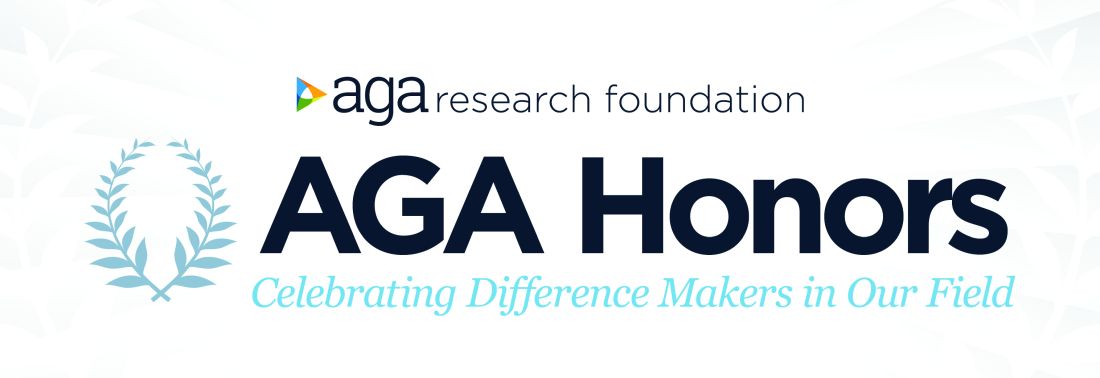
To honor the lifelong contributions and achievements of some of our most esteemed members, we are pleased to present the AGA Research Foundation’s newest program, AGA Honors: Celebrating Difference Makers in Our Field.
Our honorees have been chosen for their pivotal role in shaping the future of gastroenterology and hepatology. Honorees span the gamut from mentors and researchers to administrators and clinicians and educators across a myriad of disciplines:
John I. Allen, MD, MBA, AGAF
Rodger A. Liddle, MD
C. Richard Boland, MD, AGAF
David A. Lieberman, MD, AGAF
Martin Brotman, MD, AGAF
Pankaj J. Pasricha, MD
Michael Camilleri, MD, AGAF
Chung Owyang, MD, AGAF
Eugene B. Chang, MD, AGAF
Jean-Pierre Raufman, MD
Sheila Crowe, MD, AGAF
Don C. Rockey, MD, AGAF
Francis M. Giardiello, MD, AGAF
Anil K. Rustgi, MD, AGAF
Fred S. Gorelick, MD
Robert S. Sandler, MD, MPH, AGAF
Gail A. Hecht, MD, AGAF
Michael L. Weinstein, MD
Wayne I. Lencer, MD, AGAF
C. Mel Wilcox, MD
We invite you to learn more about our honorees and to celebrate their contributions to the field by making a donation to the AGA Research Foundation by visiting our website at http://foundation.gastro.org/aga-honors-celebrating/.
Celebrate with the AGA Research Foundation. AGA members are pillars of the GI community, dedicated to helping us achieve our goal of a world free of digestive diseases.

To honor the lifelong contributions and achievements of some of our most esteemed members, we are pleased to present the AGA Research Foundation’s newest program, AGA Honors: Celebrating Difference Makers in Our Field.
Our honorees have been chosen for their pivotal role in shaping the future of gastroenterology and hepatology. Honorees span the gamut from mentors and researchers to administrators and clinicians and educators across a myriad of disciplines:
John I. Allen, MD, MBA, AGAF
Rodger A. Liddle, MD
C. Richard Boland, MD, AGAF
David A. Lieberman, MD, AGAF
Martin Brotman, MD, AGAF
Pankaj J. Pasricha, MD
Michael Camilleri, MD, AGAF
Chung Owyang, MD, AGAF
Eugene B. Chang, MD, AGAF
Jean-Pierre Raufman, MD
Sheila Crowe, MD, AGAF
Don C. Rockey, MD, AGAF
Francis M. Giardiello, MD, AGAF
Anil K. Rustgi, MD, AGAF
Fred S. Gorelick, MD
Robert S. Sandler, MD, MPH, AGAF
Gail A. Hecht, MD, AGAF
Michael L. Weinstein, MD
Wayne I. Lencer, MD, AGAF
C. Mel Wilcox, MD
We invite you to learn more about our honorees and to celebrate their contributions to the field by making a donation to the AGA Research Foundation by visiting our website at http://foundation.gastro.org/aga-honors-celebrating/.
Celebrate with the AGA Research Foundation. AGA members are pillars of the GI community, dedicated to helping us achieve our goal of a world free of digestive diseases.

To honor the lifelong contributions and achievements of some of our most esteemed members, we are pleased to present the AGA Research Foundation’s newest program, AGA Honors: Celebrating Difference Makers in Our Field.
Our honorees have been chosen for their pivotal role in shaping the future of gastroenterology and hepatology. Honorees span the gamut from mentors and researchers to administrators and clinicians and educators across a myriad of disciplines:
John I. Allen, MD, MBA, AGAF
Rodger A. Liddle, MD
C. Richard Boland, MD, AGAF
David A. Lieberman, MD, AGAF
Martin Brotman, MD, AGAF
Pankaj J. Pasricha, MD
Michael Camilleri, MD, AGAF
Chung Owyang, MD, AGAF
Eugene B. Chang, MD, AGAF
Jean-Pierre Raufman, MD
Sheila Crowe, MD, AGAF
Don C. Rockey, MD, AGAF
Francis M. Giardiello, MD, AGAF
Anil K. Rustgi, MD, AGAF
Fred S. Gorelick, MD
Robert S. Sandler, MD, MPH, AGAF
Gail A. Hecht, MD, AGAF
Michael L. Weinstein, MD
Wayne I. Lencer, MD, AGAF
C. Mel Wilcox, MD
We invite you to learn more about our honorees and to celebrate their contributions to the field by making a donation to the AGA Research Foundation by visiting our website at http://foundation.gastro.org/aga-honors-celebrating/.
